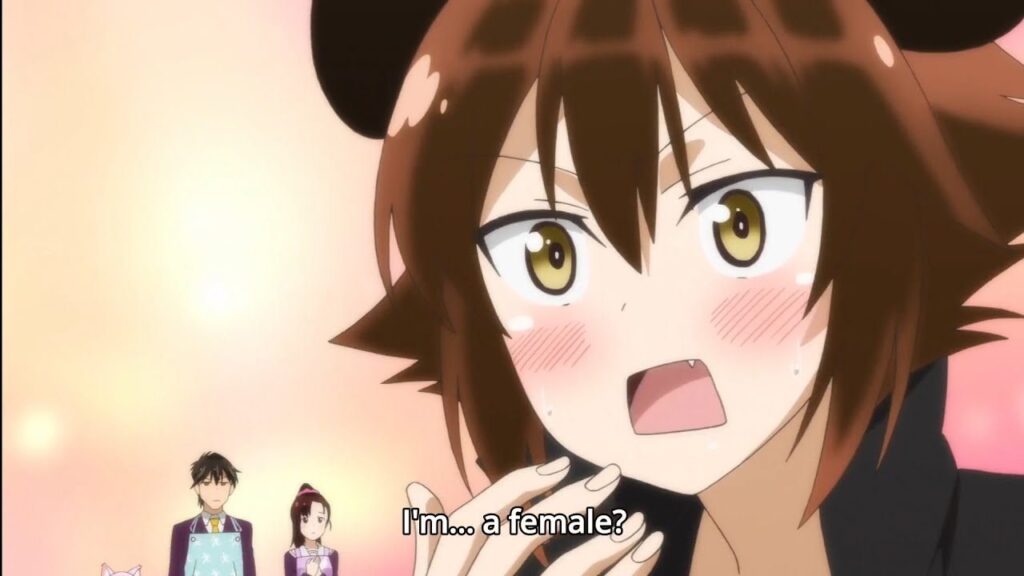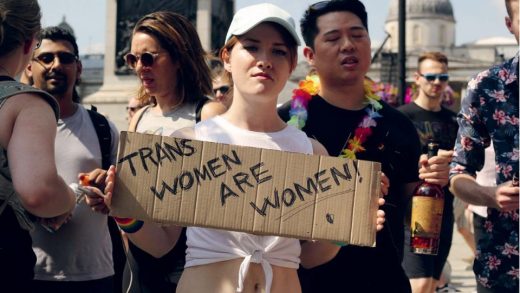This morning I watched a clip of a surprisingly progressive anime.
Murenase: Seton Gakuen is an anime about a world where humanoid animals outnumber humans and two humans at a school of animals decide to form a cooking club because they cook for themselves rather than eat the school’s animal-centric cooking.
One of the supporting characters is Iena (Yena) who is a hyena-girl. As a female hyena, she has a pseudo-penis and pseudo-scrotum where you might expect a clitoris and labia (every day is a learning day and I’ve been researching hyenas this morning). Due to this, she’s a bit confused about her gender and decided she was a boy which she has been ridiculed for.

After meeting the main characters, particularly Hitori (the female human), she decides to be a girl and dresses in the female uniform and tries to be girly. (There is also a scene where all the girls start talking about how she’s a girl with a dick and all decide they need to see but it’s curiosity and not ridicule even if it is played for laughs.) When lions start “beating up” one of her new friends (a honey badger with impervious skin), she yells out “I am a male!” and beats then up in turn. After this, she is seen wearing male clothing again and is happy to be referred to as either -chan (usually feminine or younger) or -kun (typically male). You also get to see the reaction of her father and brother which was to secretly buy her feminine clothes and toys to try and be supportive and make her happy after she declared herself female to them. After she tells them she’s a boy again, they decide to keep them in case she changes her mind again but are still supportive of who she wants to be.
You may have noticed I’ve consistently used “she” here. That is because the anime translation does. Without understanding Japanese, I can’t really comment on what either the manga or anime actually says, but I would not be surprised based on my knowledge of the language to find that they didn’t use gendered language at all here as there aren’t that many gendered pronouns for referring to other people. I suspect the use of “she” here is due to Western bias. When Iena speaks about herself, she uses “ore” which is generally a male pronoun but could also apply to tomboys.
The point of all this was that there is an anime with a character who is gender-confused and making decisions based on who they are and not who society tells them they are and has a supportive family who accepts her for who she is. There is a second point around how translation to Western standards loses a lot of nuance from the pronouns and suffixes used and how Western language is way too gendered and reinforces binary states…
Originally posted on Facebook



